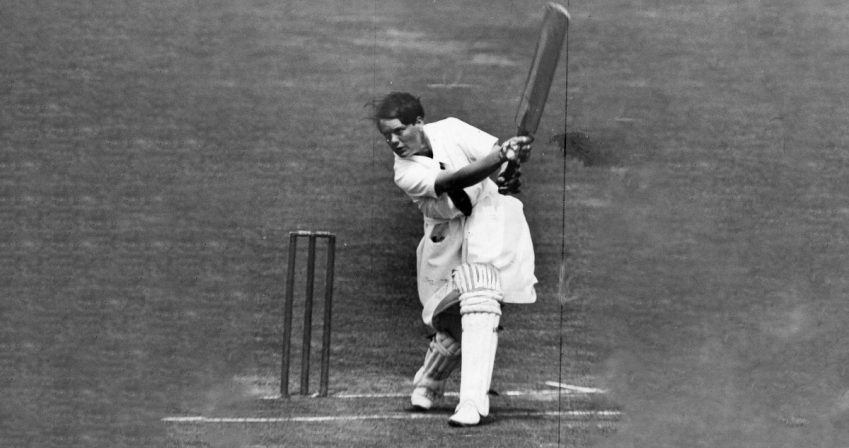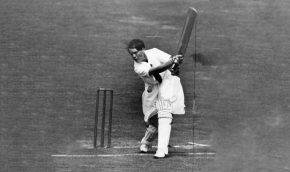Feminist, Early Woman Barrister, Cricketer and Educator
Women in Law
- Introduction
- Timeline
- Joyce Bamford-Addo
- Marion Billson
- Jill Black
- Elizabeth Butler-Sloss
- Eugenia Charles
- Lynda Clark
- Freda Corbet
- Coomee Rustom Dantra
- Leeona Dorrian
- Heather Hallett
- Frene Ginwala
- Rosalyn Higgins
- Daw Phar Hmee
- Lim Beng Hong
- Dorothy Knight Dix
- Sara Lawson
- Elizabeth Lane
- Theodora Llewelyn Davies
- Gladys Ramsarran
- Lucy See
- Evelyn Sharp
- Victoria Sharp
- Ingrid Simler
- Teo Soon Kim
- Ivy Williams
- The Significance of the Sex Disqualification (Removal) Act 1919
- Podcasts
Home › Women in Law › Pioneering Women in Law › Betty Archdale
Betty Archdale
Listen to Dr Frances Burton Discuss Betty Archdale
0:00
-0:00
1907 – 2000
Helen Elizabeth (Betty) Archdale came from an Anglo-Scottish liberal background of women’s emancipation: a one of her earliest memories (aged 4) was of gathering stones in the garden of her London home in middle class Bayswater, for her mother to use breaking windows at a suffragist demonstration: and then of visiting her mother - on a two months custodial sentence for such public disruption - in Holloway prison. This must have been a powerful indicator to her, even at 4, that there was a section of society – women – who were ‘unequal’. That seems to have inspired her life’s work, which stretched from post WWI League of Nations peace keeping in Geneva to specialist international law qualifications and finally promoting girls’ education in Australia to which she and her brother moved after WWII, later retiring there together at their lives’ end. Also a leader in women’s sport, she played cricket at international level. In all these fields her approach was radical, making successful changes despite the conservatism of the times.
A century ago, there were few careers open to educated girls – basically, marriage, teaching, nursing, or possibly clerical work. But like girls of today, Betty Archdale had wider horizons, adding politics, women’s emancipation, and the role of law in peace initiatives (a national and international project after the horrors of WWI, when her father died in action aged 45): an agenda still sadly resembling today’s, and only needing subtle ‘tweaking’ to align with our concerns now.


Betty Archdale
Her father was Captain (later Lieutenant-Colonel) Theodore Archdale, DSO, an Irish officer in the Royal Horse Artillery, from an old Ulster army and naval family; her mother was Helen Russel, a member of WSPU (the militant Women’s Social and Political Union) and a suffragist who successively edited WSPU’s publications, The Suffragette, Britannia and Time and Tide.
Betty was thus born into the conventional Edwardian lifestyle of middle class residential West London, but was not the sort of girl to accept contemporary limitations on women. Her godmother was the suffragist Emmeline Pankhurst, whose daughter Adela was the Archdale children’s nanny one summer holiday in Switzerland. The Archdales were close to the Pankhursts and their friends, who included the stars of the 2nd Lady Rhondda’s suffragist circle, such as Winifred Holtby, author of South Riding, Vera Brittain, author of Testament of Youth ((both still ‘good reads’ recently dramatized for television) and Rebecca West.
Betty was also probably Influenced by her mother’s Scottish professional background (her maternal grandmother was one of the first Edinburgh University women medical students and her maternal grandfather, Alexander Russel, the mid-19th century editor of The Scotsman, celebrated for spreading ‘sound liberal principles in Scotland’).
By the time Betty died, aged 92, at the turn of the 21st century, obituaries in The Guardian (16 February 2000) and The Independent (18 February 2000) documented her progress through a much more modern girl’s education than might have been expected of her era (co-educational Bedales, then an immensely innovative foundation, where she first played cricket; next the cricket-playing St Leonards School at St Andrews, where cricket had priority over tennis for girls; then a First Class Economics and Political Science degree, alongside her brother, at McGill University in Canada; and an International Law LLM from London University, during which she joined the International Law Association Inspired by its motto ‘Peace and Justice through Law’, she accompanied her mother to promote peacekeeping, equal status and rights of women at the League of Nations in Geneva (1933-5).
Unsurprisingly, a portfolio career was next, much more like that since favoured by women in the late 20th and early 21st centuries rather than in the early 20th, combining in her case Cricket, Law and Women’s Education.
Having captained the English Women’s Cricket Association team to Australia and New Zealand in 1934-5, (invited by the newly formed Australian Women’s Cricket Association, and where the English team won, 2-0) she was then called to the English Bar (at Gray’s Inn, 1937). Having worked on drafting the British Nationality and Status of Aliens (Amendment) Act 1937, and her legal career interrupted by WWII, she joined the WRNS , as one of the first WRNS’ officers to serve overseas, in Africa, the Middle and Far East, the Indian and Pacific Oceans and Australia.
Australia had clearly struck a chord; besides which Adela Pankhurst had already emigrated there. So, in 1946 Betty lost no time in returning, immediately becoming Principal of the Women’s College at the University of Sydney, New South Wales, Australia’s oldest university (1946-57) and then Headmistress of the exclusive Sydney Church of England Abbotsleigh School for Girls (1957-1970). There her Feminist principles and progressive ideas on women’s education caused a stir in conventional mid-20th century Sydney, when she promptly modernised the curriculum, to give the girls sex education, physics, debating and Australian history in priority to Britain’s, and the benefit of numerous international visiting speakers.
But Betty still won the support of the conservative Sydney families (unsurprisingly initially alarmed by her arrival!) while none of her innovations stopped the graduates of the University of Sydney from electing her to its governing body, the Senate, perpetuating the University’s link with her when she moved to Abbotsleigh. Later one of her students, Deirdre Macpherson, wrote her biography, The Suffragette’s Daughter, (published in NSW in 2002).
Before retiring in 1970 she also reconnected with her English legal background and wider general interests, in 1958 founding the Australian Branch of the International Law Association, by then worldwide with an Institute of Advanced Legal Studies HQ still on London University’s campus where Betty studied. She also chaired the NSW Branch of the Australian Institute of International Affairs (1960-62) and the Arts Council in New South Wales (1972-74). In 1998 the Australian National Trust voted her one of Australia’s ‘national treasures’, while in 1999 English cricket also reclaimed her, as one of the first 10 women elected as honorary life members of the Marylebone Cricket Club at Lords.